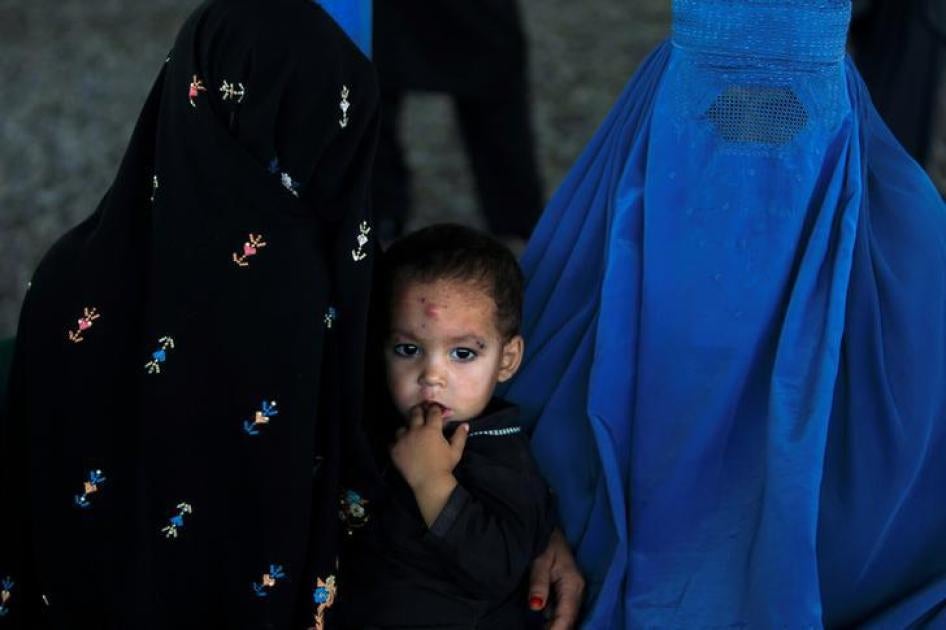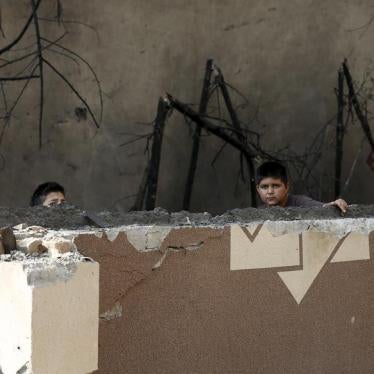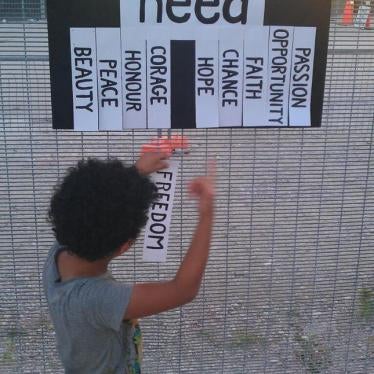(New York) – Pakistani authorities should cease coercive measures and other abuses that are driving tens of thousands of Afghan refugees from Pakistan. The Pakistani government should extend legal residency status to Afghan refugees until at least December 31, 2017.
Since July 2016, Pakistani police and provincial authorities have stepped up pressure against Afghans living in Pakistan in what the United Nations High Commissioner for Refugees (UNHCR) has called “a concerted push” to repatriate a large number of Afghan refugees before the end of 2016. This followed increasing tensions between Pakistan and Afghanistan. By September, nearly 90,000 Afghan refugees, out of an estimated total of 1.5 million, had returned in 2016.
Returning Afghan refugees – some of whom have lived 30 or more years in Pakistan – have told UNHCR that they returned home due to “economic hardship in Pakistan (linked to loss of access to job markets due to a deteriorated freedom of movement), harassment, and intimidation, arbitrary arrest, extortions, and bribery.” Returnees have alleged that Pakistani police harassed and detained them; that landlords cancelled their rental agreements, and that they were denied access to schools and medical care. Such complaints were already common in 2015, when Human Rights Watch documented abuses against Afghans in Pakistan, and appear to have worsened substantially since June.
Pakistan is not a party to the 1951 Refugee Convention, but customary international law prohibits refoulement, the return of a refugee “in any manner whatsoever” to a place where they face a serious risk of persecution or threats to their lives and safety. Refoulement occurs not only when a refugee is directly rejected or expelled, but also where indirect pressure on individuals is so intense that it leads them to believe that they have no practical option but to return to a country where they face serious risk of persecution or threats to their lives and safety. Pakistan’s refoulement of Afghan refugees is taking place as world leaders are gathering in New York on September 19 and 20 to discuss how they can better support front-line countries like Pakistan that are host to large influxes of refugees and migrants.
On June 29, Pakistan had extended the validity of Afghans’ Proof of Registration (PoR) cards until the end of December. On September 9, in apparent response to criticism of abuses against refugees and undocumented migrants, Pakistan granted a 10-week extension, until March 17, 2017. Since few returnees make the journey during the winter months, the extension is not likely to make a difference in returns through 2016.
When announcing the extension, Prime Minister Nawaz Sharif stated that "Afghan refugees living in Pakistan... are our guests and their return plans [would] be decided in a way that does not create any negative impression in the minds of people living on both sides of the border.”
Also on June 29, as Pakistan announced the six-month extension, UNHCR doubled its grant to refugees “voluntarily repatriating,” from US$200 to $400. But Afghan authorities have cautioned that they are unable to assist such large numbers returning in a short period of time. The massive increase in returns has raised concerns among aid agencies in Afghanistan, whose limited resources are already strained. They warn that many returnees lack accommodation and access to clean water and sanitation.
The security situation in much of Afghanistan remains precarious, with serious fighting in more than half the country’s provinces.
In August, the number of returnees increased dramatically to 60,743, compared with 11,416 in July and 2,342 in May. The July 19 meeting in Islamabad between Pakistan, Afghanistan and UNHCR on their Tripartite Agreement on the Solutions Strategy for Afghan Refugees (SSAR), which commits all parties to “voluntary repatriation in safety and dignity,” has done nothing to curtail refugee returns, Human Rights Watch said.
As Human Rights Watch documented in 2015, many returnees to Afghanistan end up joining the ranks of the internally displaced in settlements in urban areas where assistance is minimal. In response to the massive influx, the United Nations Office for the Coordination of Humanitarian Affairs (OCHA) issued a flash-appeal for emergency funds on September 7 to assist an anticipated 220,000 returning Afghan refugees and 400,000 returning undocumented migrants by year’s end. Some 40 percent of the people returning are considered “highly vulnerable.”
“Pakistan’s forced return of Afghan refugees should remind world leaders gathering in New York that long-time frontline host states like Pakistan, Jordan, Turkey, and Kenya are now pushing refugees back,” Gossman said. “Demands to respect refugee protection principles will carry much more weight if accompanied by significantly higher levels of support from countries that can afford it.”









